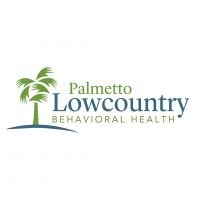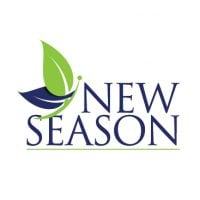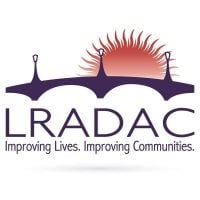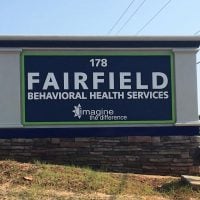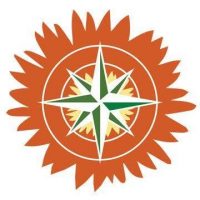Columbia Area Mental Health Center - Independence House
Drug Rehab Center in Columbia, South Carolina
- Mental Health
Independence House, located in Columbia, SC, is a mental health treatment center providing evidence-based services, such as experiential therapy, group therapy, individual therapy, nutrition therapy, and CBT, with private health insurance accepted.
About This South Carolina Facility
Columbia Area Mental Health Center - Independence House is a mental health treatment facility located in Columbia, South Carolina. It offers outpatient levels of care for individuals seeking treatment for mental health issues. The center accepts private health insurance, allowing individuals to access the services they need without facing significant financial burdens. For those looking to recover from substance abuse or addiction, Columbia Area Mental Health Center - Independence House provides a supportive environment where individuals can receive the necessary treatment and support to start their journey towards sobriety.
Independence House at Columbia Area Mental Health Center offers a range of services and treatment methods to address addiction and substance abuse. They provide individual counseling sessions where clients can work one-on-one with therapists to explore the underlying causes of their addiction and develop personalized strategies for recovery. Group counseling sessions are also offered, allowing individuals to connect with peers who share similar experiences and offer support. Additionally, the center provides psychoeducation and relapse prevention programs to equip individuals with the tools and knowledge necessary to maintain their sobriety. Through these various treatment approaches, Columbia Area Mental Health Center - Independence House aims to support individuals in achieving long-lasting recovery from addiction.
Genders
Ages
Modality
Additional
Conditions and Issues Treated
Levels of Care Offered at Columbia Area Mental Health Center - Independence House
This center offers a variety of custom treatment tailored to individual recovery. Currently available are Outpatient, with additional therapies available as listed below.
Outpatient treatment programs provide drug and alcohol addiction treatment through individual sessions with a counselor, group therapy, 12-step meetings, and other activities to help individuals gain sober living skills. Most programs are designed for those individuals who have completed a medically supervised detoxification program and provide opportunities for clients to begin the process of early recovery.
Outpatient programs also offer a level of medical support as needed and psychological backing through therapy. Clients are encouraged to live at home, though there may be some flexibility regarding this requirement based on the circumstances and needs of each patient.
Outpatient treatment is perhaps the most common type of dual diagnosis program available. It does not pose a significant financial burden on patients. However, it is essential to note that outpatient treatment does not provide the support and supervision given in residential programs. Some addicts may need this level of support to maintain their sobriety.
Therapies & Programs
Therapy sessions focused on the individual addict can provide much-needed guidance as they work toward overcoming their addiction. These types of sessions typically involve guidance from a therapist, who will help addicts identify and process their feelings and cravings.
During these sessions, addicts may develop plans for coping with the triggers that typically lead to relapse and learn how to avoid those triggers during their recovery process.
Different types of addiction treatment services are available. Within this article, group therapy is of interest due to its high success rate compared to individual therapy. Group therapy settings are beneficial because they allow recovering addicts to build a strong support network.
Benefits of group therapy are:
- Reduces feelings of isolation
- Immediate access to social support in the form of fellow addicts in recovery
- Lowers risk of relapse
- Increases rate of sobriety
- Builds coping skills that can be applied to everyday life
Cognitive Behavioral Therapy (CBT) is used by drug treatment centers to help addicts comprehend the causes of their substance abuse and the consequences that follow. Through CBT, clients learn to recognize and avoid high-risk situations and cope with challenging situations when they arise.
CBT treatment often includes a combination of individual therapy, group therapy, lectures, and other activities. The treatment’s goal is to help addicts gain self-control and maintain abstinence from drugs and alcohol over the long term so that an addict can get sober and lead a more productive life.
CBT is particularly effective in helping people overcome their drug problems, especially people whose drug abuse is motivated by self-defeating beliefs and emotions.
Good nutrition can be difficult for people recovering from addiction because they may not feel like eating while they are experiencing the physical and emotional side effects of detoxing.
Nutrition therapy can help addicts in the following ways:
- Helps individuals to understand which foods promote good health and support recovery that will assist them during detox
- Provides guidance and education in Columbia, South Carolina about how to maintain a nutritious diet so they can stay healthy during recovery
- Improves their overall health and well-being, which can reduce the severity of substance withdrawal symptoms.
Nicotine replacement therapies are effective because they provide you with the nicotine you are addicted to without inhaling carcinogens from cigarettes. Some types of NRT include nicotine gum, nicotine patches (transdermal systems), nasal spray, and lozenges. The benefits of using NRT can include reducing the risk of heart disease and cancer.
Patient Experience
Experiential Therapy at Columbia Area Mental Health Center - Independence House
Experiential therapy is a form of psychotherapy where patients are asked to engage in activities such as role-play, poetry writing, music composition, exercising, or journaling to help process intense feelings. The aim of the therapy is to help patients access deeper, often hidden emotions by helping them explore their own body and mind.
Payment Options Accepted
For specific insurance or payment methods please contact us.
Is your insurance accepted?
Ask an expert, call (888) 674-0062
Additional Details
Specifics, location, and helpful extra information.
Columbia, South Carolina 29204 Phone Number(803) 786-1183 Meta DetailsUpdated November 25, 2023
Staff Verified
Patient Reviews
There are no reviews yet. Be the first one to write one.
Columbia, South Carolina Addiction Information
More than 610,000 of South Carolina residents, or a staggering 11.9% of the state population, uses illicit drugs and another 230,000 residents abuse alcohol every year. A majority of the illegal drugs used and abused are opioids. Marijuana use and underage drinking occur amongst the young residents of this state–though at a lower rate compared to the national average.
In Columbia, South Carolina, drug addiction is a major issue. An estimated 9.4 percent of people in Columbia abuse drugs. Additionally, Columbia has a higher rate of overdose deaths than the national average. The most commonly abused drugs are cocaine, methamphetamine, heroin, and prescription opioids. There are a variety of drug rehab centers in Columbia, South Carolina. The most common types of treatment are inpatient and outpatient.
Treatment in Nearby Cities
- Santee, SC (48.9 mi.)
- Spartanburg, SC (82.5 mi.)
- Greer, SC (93.7 mi.)
- North Myrtle Beach, SC (134.0 mi.)
- Greenwood, SC (67.5 mi.)
Centers near Columbia Area Mental Health Center - Independence House
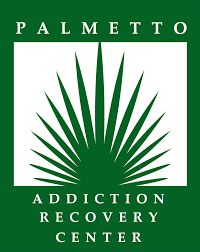
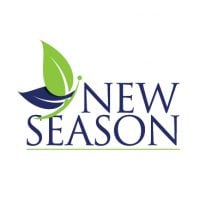
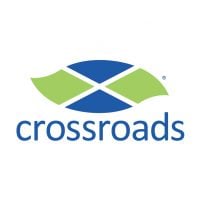
The facility name, logo and brand are the property and registered trademarks of Columbia Area Mental Health Center - Independence House, and are being used for identification and informational purposes only. Use of these names, logos and brands shall not imply endorsement. RehabNow.org is not affiliated with or sponsored by Columbia Area Mental Health Center - Independence House.

